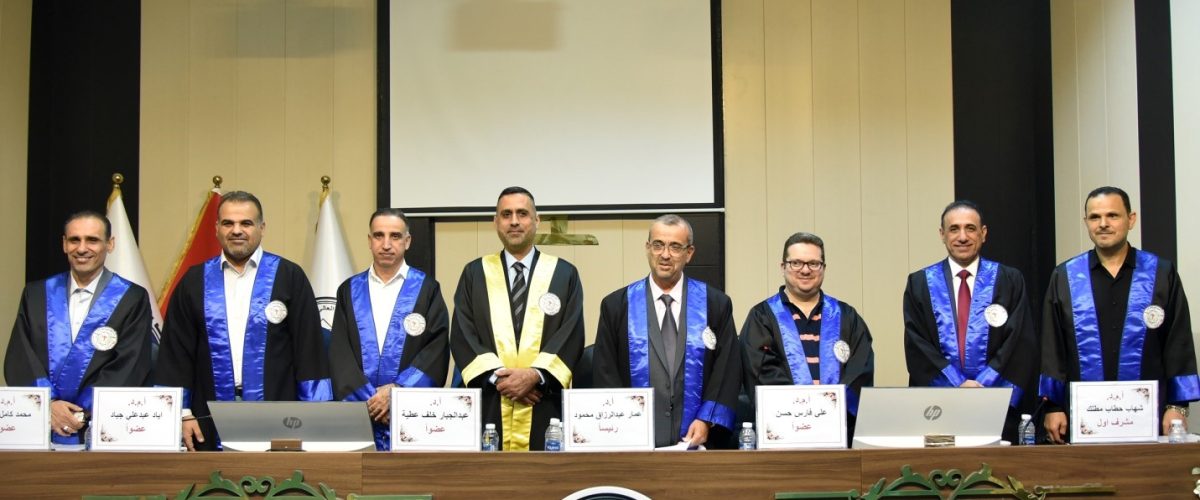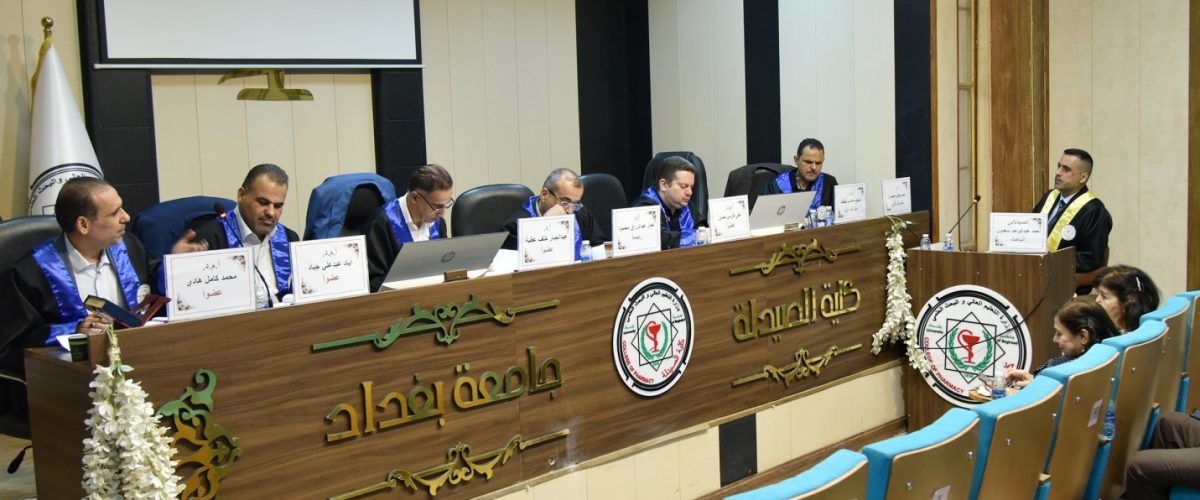The Faculty of Pharmacy/University of Baghdad discussed the PhD dissertation entitled “Design, Synthesis, and Some Biological Evaluation of New Mephenesin Derivatives” by Ahmed Abdulwahid Sadon and his supervisors, Assistant Professor Dr. Shihab Hattab Mutlag and Professor Dr. Raheem Jameel Mohaisen in the Pharmaceutical Chemistry Department. The dissertation aimed to design and synthesize 36 new compounds within two series of chalcone derivatives, which were done successfully. The basic chemical structures of the produced compounds were deduced through well-established spectroscopic techniques. The 3-(4,5-dimethylthiazol-2-yl)-2,5-diphenyltetrazolium bromide (MTT) assay was used to determine how effective the produced chalcone derivatives were in vitro as antiproliferative agents against five unique human cancer cell lines (human Caucasian hepatocyte carcinoma cell line (HepG2), human breast cancer cell line (MCF-7), human cervix epithelioid carcinoma cell line (HeLa), high-grade ovarian serous adenocarcinoma cell line (Ovcar-3), and human Caucasian lung carcinoma cell line (A549)). The antioxidative impact of the chalcone derivatives was examined in vitro using the 1,1-diphenyl-2-picryl hydrazide (DPPH) moiety. Antimicrobial testing was done to assess the antimicrobial activity of chalcone derivatives against three Gram-negative bacterial strains, including Pseudomonas aeruginosa ATCC 9027 (Gr-, Obligate Aerobe), Shigella flexneri, and Escherichia coli ATCC 25922, four Gram-positive bacterial strains, including Corynebacterium diphtheria (Gr+, Pathogenesis), Bacillus subtilis ATCC 19659 (Gr+, Endospore Former), Staphylococcus aureus ATCC-25923, and Enterococcus faecalis ATCC-11700 (Gr+, Aerotolerant Anaerobes), and two fungal pathogens, Aspergillus niger ATCC 16404 (Mold) and Candida albicans ATCC-10231 (Yeast). The study concluded that all the newly synthesized compounds showed effective biological activities for the biological tests above.




